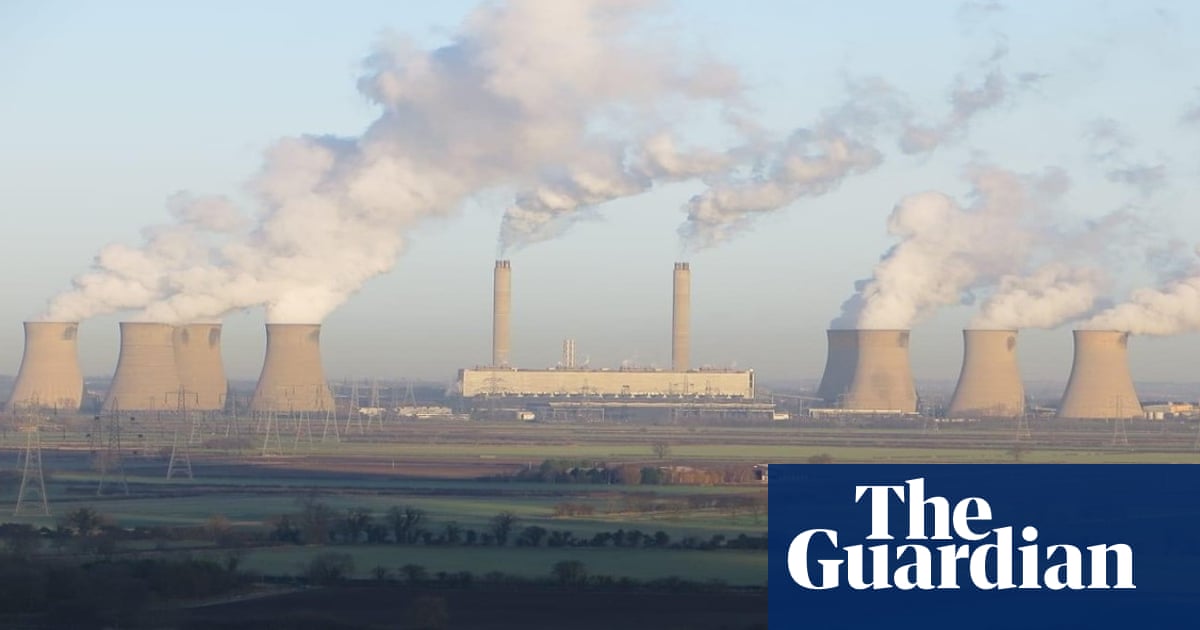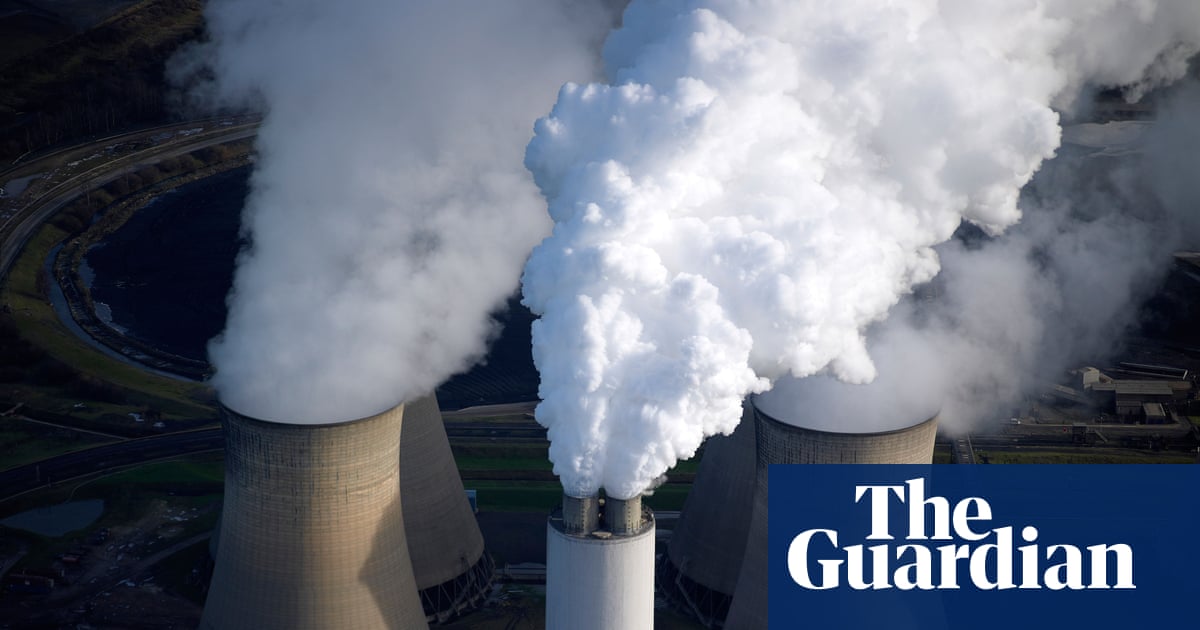
National Grid has called coal plants put on standby as emergency backup into action for the first time this winter, before the coldest night of the year.
Two units at EDF’s West Burton A plant in Nottinghamshire began producing power for the grid on Tuesday afternoon. Their output will be ramped up depending on how much electricity can be generated from other sources.
The Met Office has issued weather warnings for rain and snow across the UK, with temperatures of -4C expected in London and -6C in Birmingham.
A combination of freezing temperatures pushing up demand for power and heating, and low wind cutting windfarm electricity generation have made generation conditions tight. Strikes at EDF’s nuclear power plants in France, which supply Britain with electricity via subsea cables, have also raised concerns in recent days.
The Nottinghamshire units are two of five covered by winter contingency contracts negotiated last year by the government to keep coal-fired power plants on standby for emergency use amid heightened concerns over power supplies this winter.
The coal-fired plants, which also include units at Drax in Yorkshire and at Uniper’s Ratcliffe-on-Soar plant in Nottinghamshire, have been warmed for potential use several times this winter but stood down each time.
The Grid’s electricity system operator (ESO) has also asked two units at Drax in Yorkshire to warm up for potential use.
Separately, ESO issued an electricity margin notice, telling the owners of all power plants to bring on extra power supplies between 4.30pm and 8.30pm on Tuesday. It later cancelled this requirement.
National Grid stressed its measures to bolster supplies did not mean supplies were at risk.
However, the ESO stopped short of paying consumers and businesses to turn down their energy use. Earlier on Tuesday, it issued a notice that it may employ its demand flexibility service on Wednesday but later said it would not run.
The Grid has been on alert over risks of potential power cuts this winter because of concerns Russia would cut gas supplies into Europe, with a knock-on effect in Britain. However, a relatively mild winter and high levels of gas storage in Europe have eased these fears, and caused gas prices to fall sharply.
A spokesperson for the ESO said that the coal units would offer “additional contingency to operate the network as normal”.
In December, National Grid paid record amounts to encourage gas-fired power plants to crank up supply at short notice. Experts expected it to pay high prices to gas-fired plants again on Tuesday.
Live ESO data showed gas-fired plants accounted for 54% of Great Britain’s electricity generation, with windfarms contributing 13% and nuclear 10%.












